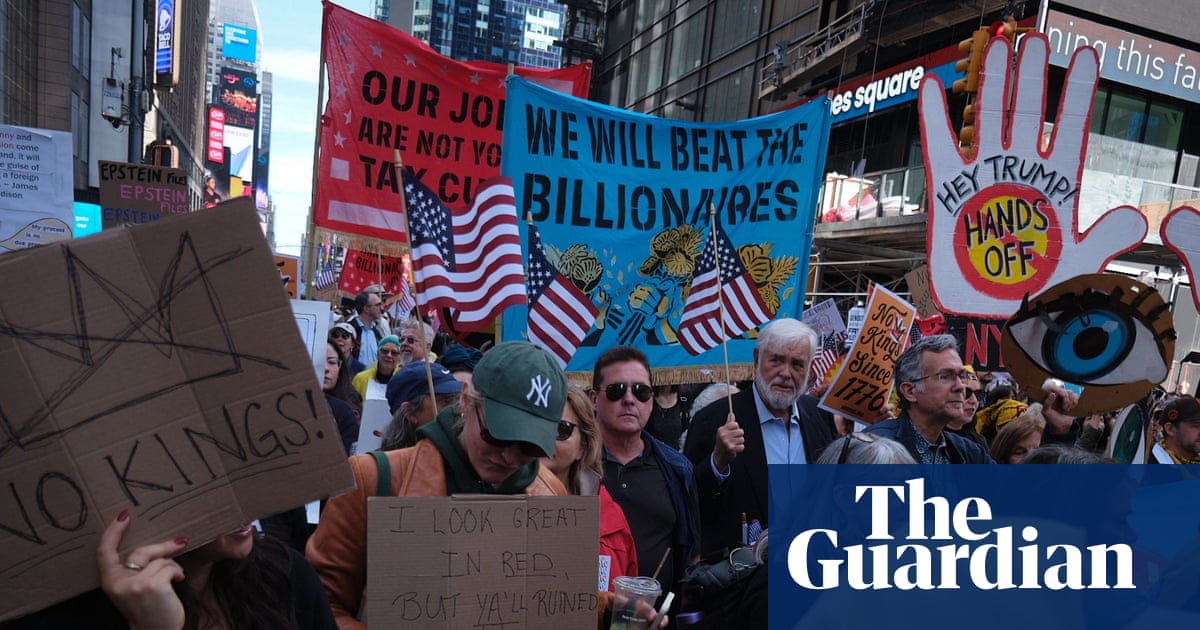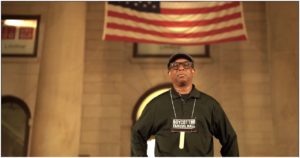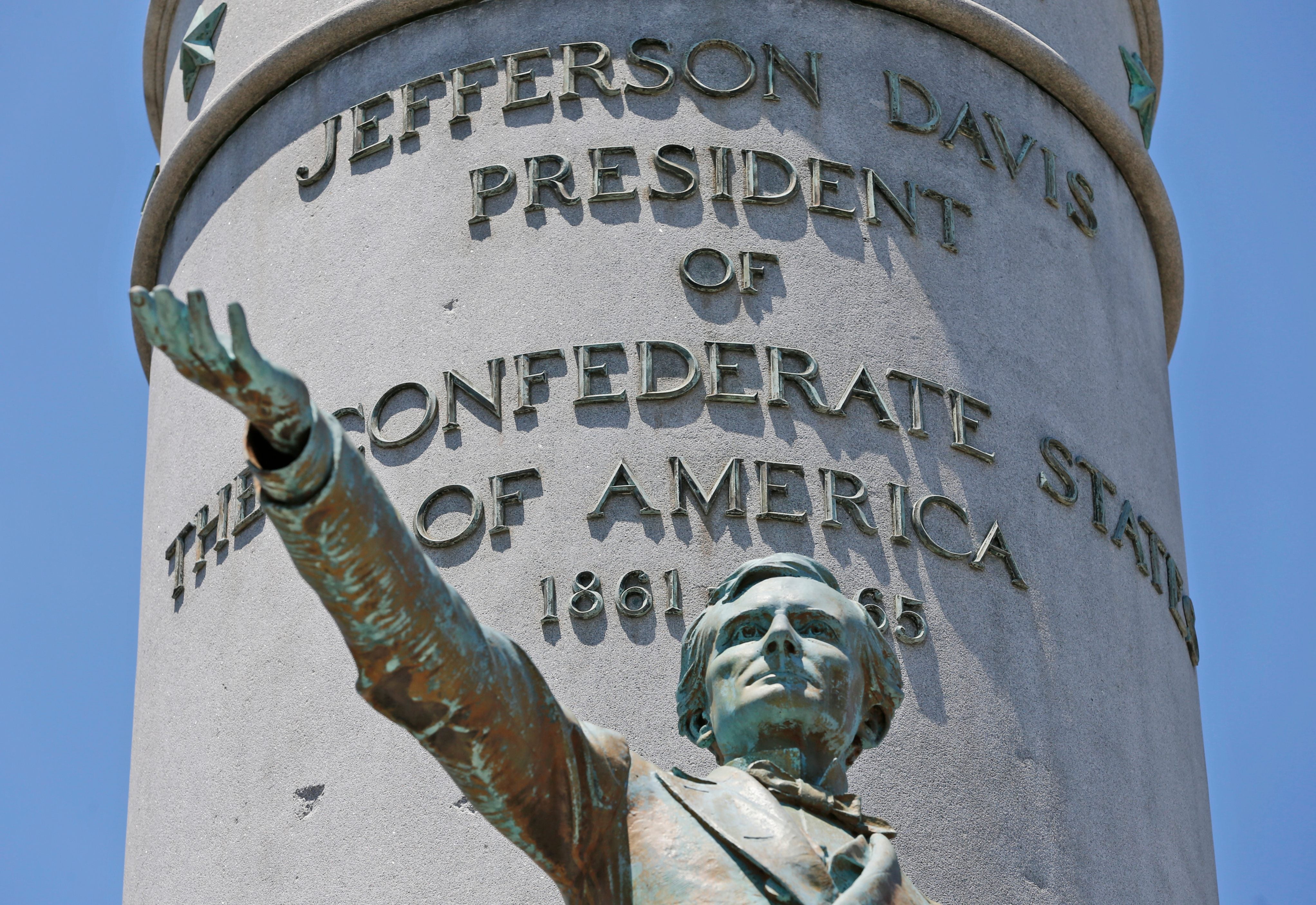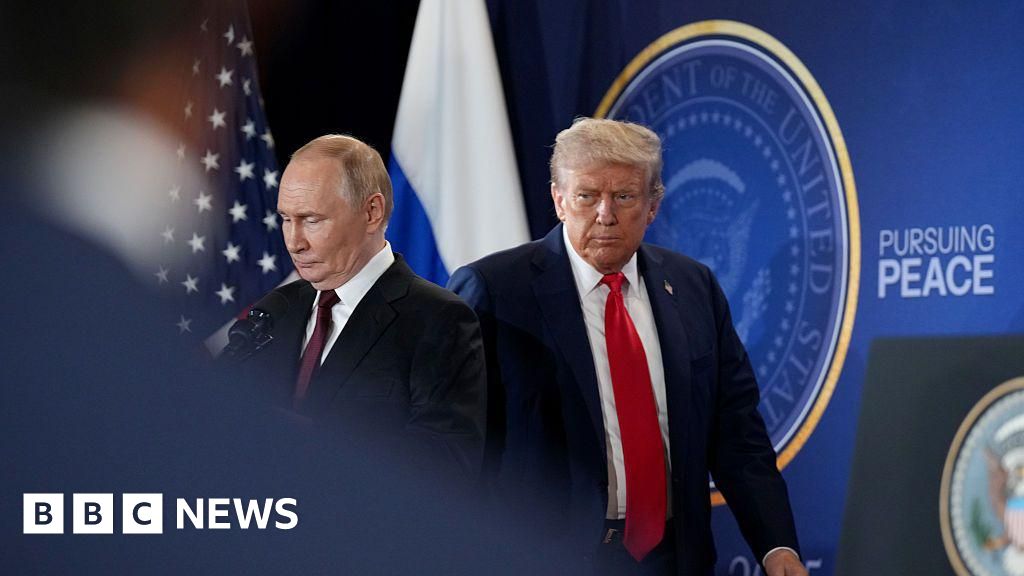The No Kings alliance, the left-leaning groups behind the mass days of protest last Saturday and in June, is building a nationwide rapid response network that will call on supporters to take new actions each week. Leaders of the organizations told the Guardian that there was energy for “some type of disruption”, and future actions could include targeted boycotts, campaigns at universities, more street protests, and electoral organizing in local communities.
After an estimated 7 million people took to the streets last weekend, tens of thousands joined a national call on Tuesday to hear what’s next for the growing movement. Leaders celebrated the broad turnout, saying it showed how much opposition to Trump there was in all corners of the US, and talked about how to sustain and grow a movement during an increasingly authoritarian moment for the country.
The next steps for this burgeoning resistance will show the durability of the movement and whether it can pressure Democrats or pillars of civil society to stand stronger against Trump, or whether it can force defections from Trump’s Republican allies to fracture his power.
Chicago’s mayor, Brandon Johnson, elevated the idea of a general strike at his city’s rally, an idea that some labor leaders, including the United Auto Workers president, Shawn Fain, and his Association of Flight Attendants counterpart, Sara Nelson, have called for, though no more imminent plans have emerged.
“If my ancestors, as slaves, can lead the greatest general strike in the history of this country, taking it to the ultra-rich and big corporations, we can do the same today,” Johnson said, clips of which spread widely.
A report from Harvard researchers before Saturday’s rallies found this year’s protests had been more geographically broad than those in Trump’s first term, saying “the current protest movement has already reached deeper into Trump country than at almost any point during the first Trump administration”.
The geographic diversity means people are getting tapped in with local groups to organize in their own communities, and those local networks will have different goals that make sense in their areas. In some, that could look like attending school board meetings or working against Republican gerrymandering efforts.
“It may be different things in different locations,” said Cliff Albright, co-founder and executive director of Black Voters Matter. “But I think most of the energy and most of the discussions taking place right now are related to some type of disruption … The next rally needs to be accompanied by some other type of action as well.”
Nationwide, the movement remains leaderless, though some elected officials, including Senator Bernie Sanders, attended protests and spoke to the crowds. On the Daily Show this week, Sanders said Democrats now need to set out their vision for the country, citing access to healthcare and home ownership as part of it. “I think that many of my colleagues in the Democratic party have not had that vision,” he said.
Here’s what the leaders of organizations involved in No Kings told the Guardian about their vision for what will come next for the movement. Their comments have been edited for clarity and brevity.
-
Indivisible
Ezra Levin, co-founder (as told to mass call on 21 October)
“No successful anti-authoritarian movement in the history of the world has relied exclusively on one-day protests, even historic, incredible life-giving one-day protests like Saturday. Successful movements grow, they evolve, they diversify their tactics, and they do new things together. There are going to be big mobilizations in our future, but before that, there’s going to be overreach from this regime. We’re seeing it with our own eyes. They’re dominating media institutions, they’re dominating universities. They’re bullying businesses and political opponents, and we need to coordinate a way to respond quickly and powerfully with the full force of this movement. The era of capitulation and obey in advance, that’s over.
Ezra Levin. Photograph: Jemal Countess/Getty Images for MoveOn
“The No Kings era is here, and it’s defined by widespread mass defiance of this regime. That’s why we’re launching the No Kings alliance, a nationwide Rapid Response Network built for this moment to coordinate pushback … The alliance is an effort to coordinate the full diversity of our movement and use the leverage that we have with the people power we’ve collectively built.
“At Indivisible, we’re talking a lot about boycotts and economic power. We should learn from Disney and ABC and Kimmel. The regime bullied. The institution capitulated. The people rebelled. The institution reversed, and democracy sat up a little straighter the next day, is a little bit more confident. Rinse and repeat.
“We just pulled off the largest peaceful protest in American history, and those fascists are quaking in their jackboots at what we’ll do next.”
-
Organization for Black Struggle
Jamala Rogers, executive director
“The No Kings protests have accomplished two of its three goals. We have identified the growing defiance of the Maga regime and its inhumane and unconstitutional policies and decisions. It was also important to show the world that we do not condone the current authoritarian government. Protesters are uniting in solidarity, driven by a shared vision of what a true democracy should reflect.
“The Organization for Black Struggle believes it is time to intensify our impact on the state and local levels by identifying strategic targets. These could be corporations or institutions who support the Maga platform and who are implementing it. For example, in Missouri the GOP-dominated legislature passed a new gerrymandered map following Trump’s directive to create more districts aimed at securing congressional seats before the midterm elections. The activist communities in Missouri are now collecting signatures to put the issue on the ballot to restore the 5th CD and maintain Kansas City’s sole African American congressman.
“The protest communities should also target places of commerce to disrupt the flow of capital, like sports arenas.”
-
American Civil Liberties Union
Deirdre Schifeling, chief political and advocacy officer
“The best way to protect our freedom is to act free – and that’s exactly what over 7 million people did on Saturday by peacefully and lawfully protesting President Trump’s abuses of power. Using our first amendment rights to free speech and protest is most patriotic and American thing we can do in the face of this administration’s attacks. Saturday’s events were more than a single day of protest: it was a powerful example of the courage, strength and determination of the American people to defend our democracy.
Deirdre Schifeling. Photograph: Tasos Katopodis/Getty Images for No Kings
“The ACLU will continue to channel that courage to defend our freedom in the courts, in statehouses, and in our communities.”
-
50501
Hunter Dunn, national press coordinator
“At 50501, we’re currently working with members of the Working Families party to promote a toolkit that helps boycott Home Depot, and we are hosting a community survey to help determine our next action(s). We are also focusing on uplifting local organizers in cities facing occupation or increased federal brutality, including Chicago, Portland, DC, Memphis, New York and San Francisco, as well as supporting the Disappeared in America Weekend of Action at the beginning of November.
“I expect there will be another No Kings-level mass mobilization sometime in the next several months. However, right now, I believe the most important thing is to focus on connecting No Kings attendees with community groups that provide active resistance against the Trump administration. Whether it’s groups like 50501 that are focusing on protests, mutual aid work and boycotts, or your local union, or immigrants’ rights groups like CHIRLA, or anti-Ice community defense groups like Valley Defensa, or groups providing legal protection from the Trump Regime, or a group you formed on-the-ground at No Kings, the most important thing a No Kings protester can do is get involved.
“We need to continue building our protest, mutual aid and civil disobedience muscles now, so that when the opportunity arises, we can peacefully dismantle this regime and undermine its pillars of support.”
-
American Federation of Teachers
Randi Weingarten, president
“It’s really important to tie together the issues around democracy and fighting back against authoritarianism and what we need to do to help Americans have a better life, and how to address the affordability crisis and the cost of living crisis. If you’re an American who is actually struggling to make ends meet, you want to connect the voice in government with what you use that voice for. And so that’s why we connect it to these other fights, like the healthcare premiums that are skyrocketing.
Randi Weingarten. Photograph: Jemal Countess/Getty Images for MomsRising
“When you talk about boycotts, or what we’re doing on college campuses to fight against the loyalty oaths, these are all part of the fight to get other institutions to actually do their jobs and to, instead of capitulating to authoritarianism, to actually believe in the rule of law, not the rule of one man. But look at what’s happening on college campuses: there are at least seven of the nine who were asked to sign the loyalty oath that said no. So that kind of organizing is always a part of something bigger, and that is to try to get these institutions to be as courageous as the individuals who are on the streets for No Kings on Saturday.
“We think about the tactics, we think about how we fight this as a community, and the courage of our convictions. We fight it through Congress and the courts. We fight it in commerce and we fight it in the court of public opinion.”
-
Public Citizen
Lisa Gilbert, co-president
“We have great challenges ahead to defeat Trump’s authoritarianism. But animated by the spirit and energy of this weekend, we have a springboard for more actions to follow. This may include call-in days to stand up for healthcare in the current government shutdown fight, actions to support immigrant families against Ice raids, email campaigns to block schemes that would make voter suppression even worse, campaigns against corporations preparing to fund Trump’s White House ballroom and engage in other corrupt dealings with the administration, campus projects to ensure universities reject Trump’s proposed ‘racist’ compact, rallies to fight free speech affront, and more.
Lisa Gilbert. Photograph: Gabriella Demczuk/Getty Images
“The fight for the soul of democracy is live, and we all need to participate.”
-
Service Employees International Union (SEIU)
Joseph Bryant, executive vice-president
“On No Kings Day, SEIU members and unions across the country exercised our first amendment right to show what real power looks like. From care workers to janitors to educators, millions filled the streets to reject the lawlessness of this administration.
“Our work doesn’t stop here. We will continue to mobilize to demand that our healthcare be protected and not robbed for billionaire tax breaks. We demand an end to cruel Ice raids and militarized takeovers of our cities that make no one safer. And we demand that federal workers who serve our communities be reinstated. When working people move together, we can defend democracy and build a future where every one of us can thrive.”
Joseph Bryant. Photograph: Paul Morigi/Getty Images for Community Catalyst
-
Black Voters Matter
Cliff Albright, co-founder and executive director
“There’s no one way to grow a movement like this. We can look at some of our past experiences in this country. We can look at what some other countries have done … [The movement] is growing and, like a lot of things in life, that growth needs to be nurtured. I’m confident that this movement is going to continue going in the right direction, and it will continue to bring more people on board. Because a lot of people have observed, it’s a lot of white people at these rallies. Where’s everybody else? Where are the black people, the Latino people. I think what you’re seeing at each one is that it gets more diverse … It’s moving us up a scale, up a ladder of engagement.
Cliff Albright. Photograph: Bloomberg/Getty Images
“There’s growing support for [a general strike]. Groups like ours will be involved with educating people around, what is this? When has it been done in the past? How do you do it successfully? What are the objectives? I think there would need to be ongoing awareness raising and education and preparation for it.
“Whatever the next action is, it’s going to be one that both has an understanding and acceptance by a good number of the 7 million people that showed up to the rallies, but I think may even be something that may push some of us to go a little bit beyond what the current comfort level is. Finding that balance of something that stretches us enough, but doesn’t stretch us too much. Something that is practical enough to be manageable and doable, but also big enough and visionary enough to be impactive.”
-
Human Rights Campaign
Brandon Wolf, national press secretary
“The fight for democracy and freedom needs all of us. What comes next is plugging people in wherever they can – in big ways and small – to resist this administration’s authoritarianism. We will mobilize people to school board meetings and legislative hearings, boycotts and buy-ins, local elections and campaigns for Congress. Now is the time to continue turning the nationwide No Kings energy into strategic people power.”
Brandon Wolf. Photograph: Mariam Zuhaib/AP
-
Working Families Party
Joe Dinkin, deputy national director
“Working people are tired of Republicans who say they care about the working class only to turn around and cut our healthcare so the wealthy can get bigger tax cuts. That’s why we saw millions of people show up to No Kings protests on Saturday. Heading into the midterms, we expect to see new leaders step up, from protests to boycotts to getting out the vote and even running for office themselves.”
-
Interfaith Alliance
The Rev Paul Brandeis Raushenbush, president and CEO
“The No Kings movement has mobilized many millions of Americans to demonstrate courage in defense of democracy and decency. Going forward it should continue to build unprecedented levels of civic engagement, including by training thousands of people of faith in the spiritual discipline of nonviolence – which is crucial to the practice of democracy. The movement can push back in real time against attacks on vulnerable minorities and core freedoms – taking actions to show that we will never capitulate to authoritarianism.”
-
Common Cause
Virginia Kase Solomón, president & CEO
“People in this country are sick of the corruption and abuse coming from this administration. Instead of lowering costs and improving lives, Trump has only enriched himself and his billionaire friends. The millions that came out to the No Kings rally did their job and now it’s time for Congress to respond to the people’s activism with action, something tangible that demonstrates that we are a democracy and not an autocracy.”
Virginia Kase Solomon. Photograph: Tasos Katopodis/Getty Images for Common Cause
-
League of Conservation Voters
Justin Kwasa, democracy program director
“People in every state showed up to clearly say No Kings in our country. Trump and his extreme Republican allies are increasing the cost of healthcare and energy for families around the country, and are using Trump’s government shutdown to attempt to illegally fire more workers, shut down more programs, and threaten the health and safety of communities. The next step for us is to identifying ways to get these 7 million people who showed up for No Kings more involved in holding this administration accountable in various ways … LCV will be featuring our actions in their regularly updated weekly activities section.”







